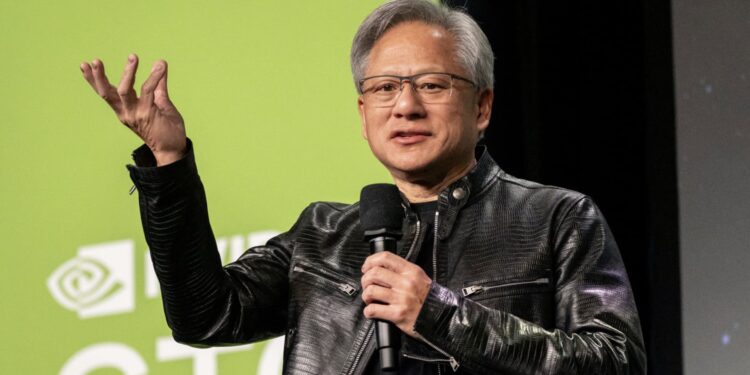Nvidia CEO Jensen Huang has urged the US government to reevaluate its strict laws governing the export of artificial intelligence (AI) technology to China. His request follows China’s recent release of its own AI regulations, which may indicate a change in the global AI scene.
Speaking at a tech conference in Taipei, Huang stressed that the current US export restrictions are not only failing to work, but are also unintentionally helping China’s domestic AI sector flourish.
He claimed that these limitations are “a failure” and are forcing Chinese competitors like Huawei to innovate and create their own competitive AI hardware, which is the “exact opposite effect” that the US had hoped for.
Huang claims that the numerous prohibitions and sanctions put in place by the previous and current US administrations are the main reason why Nvidia’s market share in China has drastically decreased from 95% in early 2021 to about 50% today. China’s AI industry is growing rapidly in spite of these limitations.
Rather, Chinese businesses are increasingly using domestic alternatives, which, with significant government investment and support, are quickly catching up to US technology.
Huang contended that the United States should be working harder to encourage the global use of US AI technology instead of trying to keep that use from happening, saying such attempts to curtail use of the technology will lead to the undoing of the US’ competitive advantage. He also warned of the enormity of the financial cost of the export bans, predicting that American companies are set to lose massive earnings potential as well as tax income.
Further complicating the situation is China’s recent decision to establish AI regulations. While the specifics of these regulations remain unclear at this point, it suggests China’s ambition to develop a domestic AI ecosystem and even define its own parameters and criteria.
If the country’s AI industry continues to develop at a rapid pace, these measures will mean that Chinese companies will gain a regulatory edge in their home country’s market and possibly a stronger position in other regions as well, which would further challenge US AI firms’ supremacy.
Although the US Commerce Department issued guidance that warned businesses about using sophisticated Chinese chips, such as those from Huawei, and running the risk of breaking US export controls, China’s response was issuing demands for the US to correct its “wrongdoings” and put an end to its “discriminatory” behavior.
Huang’s advocacy for the US to ditch AI regulation only reflects the broader concern among American IT firms that the current policy direction does more harm than good.
More specifically, there is a serious fear that not only will these measures force individual US companies into bankruptcy or sluggish development, but they will also fast-track China’s self-sufficiency in crucial technologies, which will have dire long-term consequences for the US’s global position.
Therefore, the debate around the level of necessary restrictions on the industry in light of the threats of AI technology in modern political power paradigms.










![Online Scam Cases Continue to Rise Despite Crackdowns on Foreign Fraud Networks [Myanmar] Online Scam Cases Continue to Rise Despite Crackdowns on Foreign Fraud Networks [Myanmar]](https://sumtrix.com/wp-content/uploads/2025/06/30-12-120x86.jpg)




